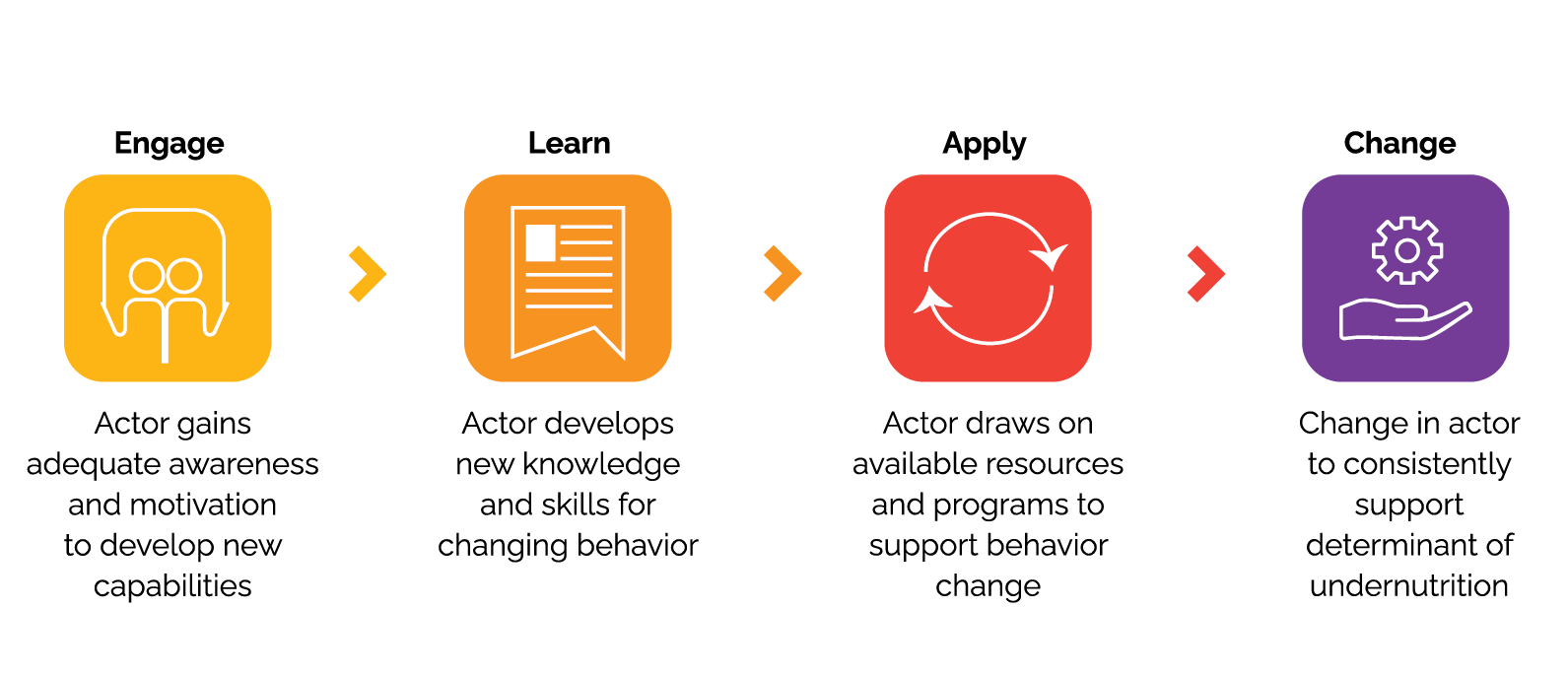How Does Nutritional Behavior Change Happen? A Tool to Help You Apply the Lessons
A new booklet helps users plan and track behavior change efforts to improve nutritional outcomes.
A new booklet helps users plan and track behavior change efforts to improve nutritional outcomes.
By:
Download the Mapping Tool for Planning and Measuring Nutrition Interventions for Behavior Change (PDF).
As public health specialists, we know that successfully addressing many of the factors that determine nutrition requires changing behavior. Behaviors related to feeding, caregiving, health, and hygiene practices, of future mothers, mothers, and caregivers to young children.
And as evaluators, we advocate measurement with a passion. Certainly not for the sake of measuring alone or as a pure accountability mechanism, but with the intention to track progress on our efforts, learn from the data, inform next steps and course correct if needed.
Yet measuring behavior change can be challenging, and to help peers and practitioners, we developed a guide. This mapping tool is a way to plan, target, and measure needed incremental behavior changes.
Targeting specific actors, such as caregivers, households, or service providers, this tool can help users plan interventions along a behavior change results chain: “engage”, “learn”, “apply”, and “sustain.” It offers examples of behavioral objectives and indicators to measure change across three nutrition determinants: Food and care; Health services; and Water, sanitation, and hygiene (WASH).

An advantage of this approach is that it can also be applied to behavior change programming beyond nutrition. If you use any part of the tool, feel welcome to share your experience with us in the comments below.
The behavior change mapping tool is based on evidence from an evaluation we recently conducted of the World Bank’s support to reducing child undernutrition. Reviewing a large portfolio spanning ten years, we found behavior change and social norms interventions to be crucial, but sometimes overlooked pathways for improving nutritional outcomes in countries.
The evaluation thus recommends country programs to increase their focus on behavior change and social norms through lending, analytical work, and measurement efforts.
If you want to learn more about the lessons emanating from international development support for reducing child undernutrition, feel welcome to watch the recording of IEG’s event at the Nutrition for Growth 2021 Tokyo Summit.

Jenny Gold is a Senior Evaluation Officer at the Independent Evaluation Group, specializing in the Health Sector.

Mercedes Vellez is an economist and an evaluation officer in IEG’s Human Development & Corporate Programs Unit.
Add new comment